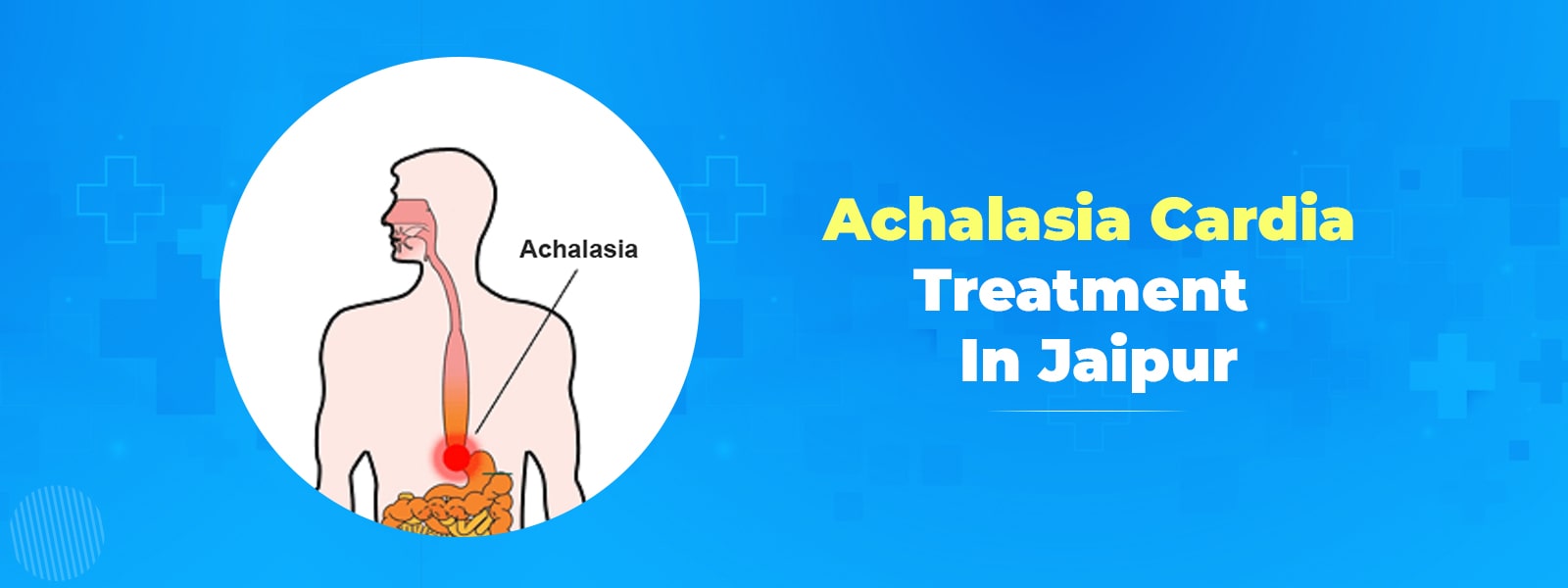
Achalasia Cardia Treatment in Jaipur
Do you experience difficulty in swallowing? There are chances that you might be suffering from Achalasia Cardia and searching for the best Achalasia Cardia treatment in Jaipur. Achalasia Cardia is a rare neuromuscular disorder that impacts the ability of the person to swallow food and liquid through the esophagus which is a tube that connects the mouth to the stomach. The condition primarily occurs when there is significant damage to the nerves in the esophagus. The impaired opening of the lower esophageal sphincter at the entrance of the stomach during swallowing results in the esophagus losing the ability to squeeze down the food into the stomach. As a result, food comes back to the esophagus which can taste bitter. Most people assume the disease to be GERD (Gastroesophageal Reflux Disease) but the major difference between the two is that in the prior the food comes from the esophagus while in latter the food material directly comes from the stomach.
The symptoms of the disease Achalasia Cardia gradually appears and as the condition progresses, the symptoms worsen over time. Our doctors providing Achalasia Cardia treatment in Jaipur explain some of the common signs and symptoms of the disease which include heartburn, vomiting, weight loss, pain in the chest, difficulty in swallowing, and having a feeling that whatever food or liquid is going inside is coming back to the mouth. Although there is no exact cause of the disease loss of nerve cells in the esophagus is one of the primary causes of the disease along with the viral infection and the autoimmune responses. Moreover, particularly in people suffering from motility disorders, the muscles of the esophagus fail to contract which results in the loss of the patient’s ability to swallow.
Get Achalasia Cardia Treatment in Jaipur from the team of top gastroenterologists
The treatment for Achalasia Cardia in Jaipur depends on the correct and accurate diagnosis of the disease because often the symptoms are similar to other types of digestive disorders. This can mislead the doctors and can result in the wrong diagnosis of the disease. Our doctors at the hospital recommend patients undergo procedures such as upper endoscopy, esophageal manometry, and the esophagram which is the x-rays of the upper digestive system. Procedures such as esophageal manometry primarily measure the timing as well as the strength of the esophageal contractions along with the relaxation of the lower sphincter muscle. In some cases, Barium Swallow is also an effective diagnostic method in which a patient is asked to swallow barium prepared in the liquid form. As the barium liquid moves down the esophagus, the movement of the liquid is tracked to identify the areas affected by the disease.
At SR Kalla hospital, we perform procedures such as POEM (Peroral Endoscopic Myotomy) which is one of the commonly adopted procedures for treating swallowing disorders like Achalasia Cardia. In this procedure, a thin tube-like structure called an endoscope is inserted into the patient’s mouth which runs down the esophagus. A small camera is placed on the end of the endoscope and the doctor can control the endoscope by watching the pathway on the monitor. The endoscope captures the images as it moves through the lining of the esophagus muscles. Thereafter, a special knife that is attached to the end of the endoscope cuts away and loosens the tight esophagus muscles that are responsible for causing the swallowing problems. This helps in improving the ability of the muscles on the side of the esophagus, the upper part of the stomach, and the lower sphincter muscle of the esophagus.
Our doctors providing Achalasia Cardia treatment in Jaipur recommend certain types of simple practices that should be followed during the meals to prevent the occurrence of various kinds of digestive disorders including Achalasia Cardia. There are some particular kinds of swallowing exercises that help in enhancing the tone and the strength of the lower esophageal sphincter muscle. Further, there should be a proper time gap between each meal and the patient should avoid skipping meals. In addition to this, to keep the throat moist and hydrated, the amount of fluids should be increased in the body. Swallowing therapies can also be suggested to improve the swallowing and eating ability of the patient.